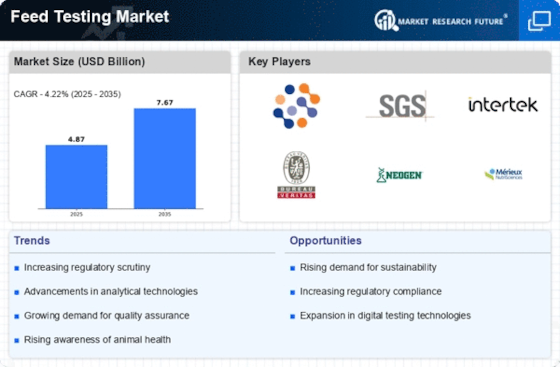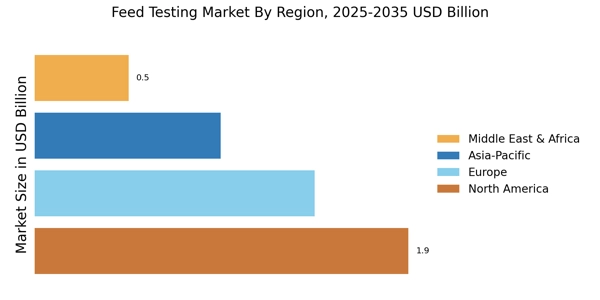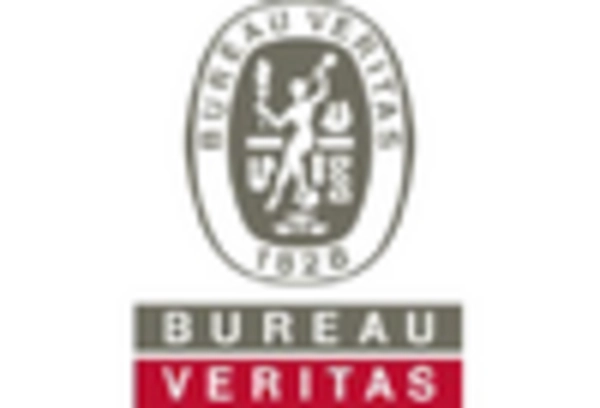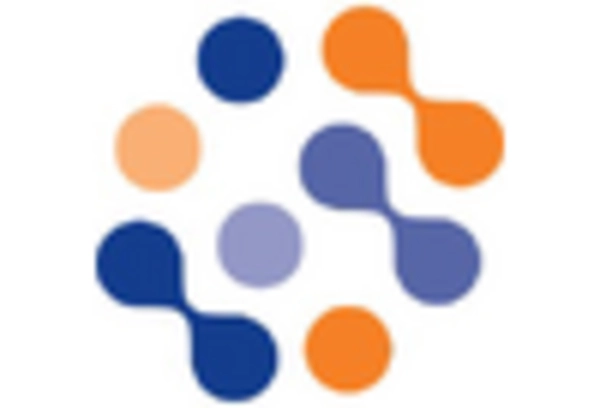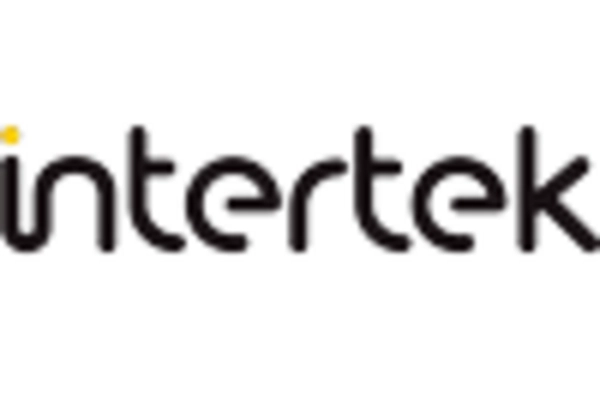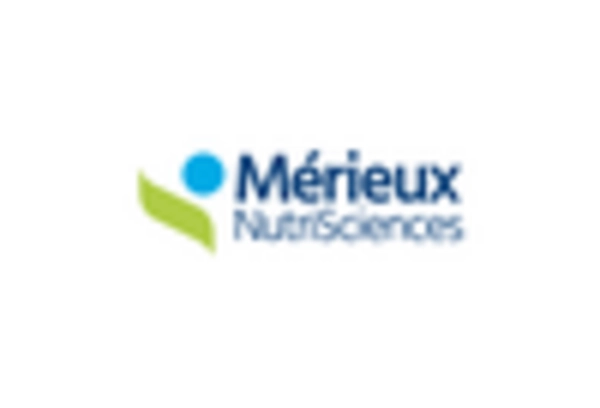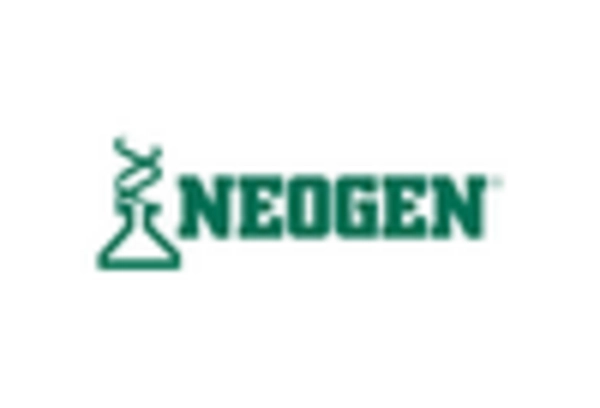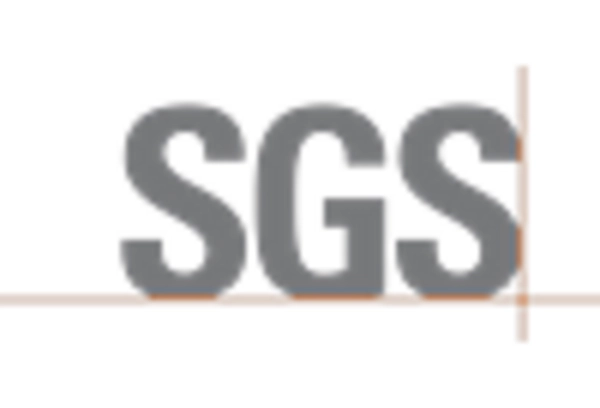Rising Demand for Animal Protein
The increasing The feed testing Industry. As consumers become more health-conscious, the demand for high-quality animal products has surged. This trend necessitates rigorous testing of animal feed to ensure it meets nutritional standards and safety regulations. According to recent data, the animal feed market is projected to reach a value of approximately 500 billion USD by 2026, which underscores the importance of feed testing in maintaining product quality. The Feed Testing Market plays a crucial role in ensuring that feed formulations are safe and effective, thereby supporting the overall health of livestock and, ultimately, the food supply chain.
Increased Awareness of Feed Safety
There is a growing awareness regarding feed safety among consumers and producers alike, which is propelling the Feed Testing Market. With incidents of feed contamination and foodborne illnesses making headlines, stakeholders are more vigilant about the quality of animal feed. This heightened awareness has led to increased investments in feed testing services to ensure compliance with safety regulations. The Feed Testing Market is responding to this demand by offering comprehensive testing solutions that address various safety concerns, including mycotoxins, pathogens, and chemical residues. As a result, the market is expected to witness substantial growth as producers prioritize feed safety to protect their livestock and maintain consumer trust.
Regulatory Compliance and Standards
The Feed Testing Market is significantly influenced by the need for regulatory compliance and adherence to established standards. Governments and regulatory bodies are implementing stringent guidelines to ensure the safety and quality of animal feed. This has led to an increase in demand for feed testing services that can verify compliance with these regulations. For example, the European Union has set specific limits on contaminants in animal feed, necessitating regular testing to avoid penalties. As regulations continue to evolve, the Feed Testing Market must adapt to meet these requirements, which could lead to increased investment in testing technologies and services.
Sustainability and Environmental Concerns
Sustainability is becoming a pivotal concern within the Feed Testing Market. As the agricultural sector faces pressure to reduce its environmental footprint, there is a growing emphasis on sustainable feed production practices. This includes the use of alternative ingredients and the reduction of waste in feed formulations. Feed testing plays a vital role in this transition by ensuring that alternative feed sources meet nutritional and safety standards. Moreover, as consumers increasingly prefer sustainably sourced animal products, the Feed Testing Market is likely to see a rise in demand for testing services that verify the sustainability claims of feed ingredients. This trend may drive innovation and investment in sustainable feed testing solutions.
Technological Innovations in Feed Testing
Technological advancements are significantly influencing the Feed Testing Market. Innovations such as rapid testing methods, automation, and advanced analytical techniques are enhancing the efficiency and accuracy of feed testing processes. For instance, the introduction of real-time PCR and mass spectrometry has revolutionized the detection of contaminants and nutritional components in feed. These technologies not only reduce testing time but also improve the reliability of results, which is essential for feed manufacturers aiming to comply with stringent quality standards. As the industry evolves, the integration of technology into feed testing is likely to become more pronounced, further driving the growth of the Feed Testing Market.


